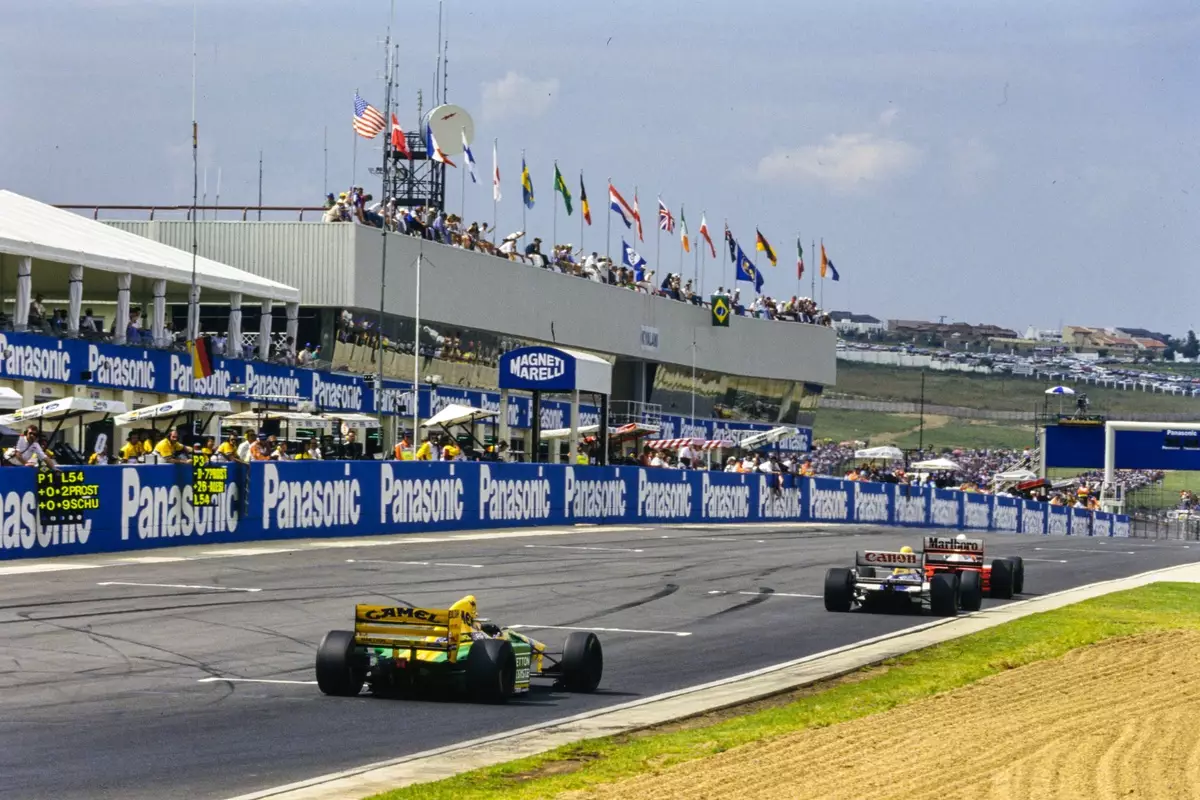South Africa has witnessed a fervent and ambitious push to re-enter the Formula 1 (F1) arena, a chapter that has been dormant for 32 years. The government’s recent extension of the deadline for submission of bids to host a grand prix is indicative of the unwavering commitment to revitalize motorsport in the nation. This article delves into the implications of these developments, exploring the potential outcomes for the South African economy, the motorsport landscape, and the regional competition vying for F1’s attention.
The last time South Africa hosted an F1 Grand Prix was in 1993 at the Kyalami circuit, an iconic venue that has lingered in the memories of motorsport enthusiasts for decades. However, a failed bid in 2023 to revive this race has not abated the government’s determination to bring the prestigious event back to the African continent. The establishment of a Bid Steering Committee (BSC) by the Ministry of Sport, Arts and Culture underscores the seriousness of this endeavor. By extending the deadline for bid submissions from January 31 to March 18, 2025, the government is not just offering a generous timeframe, but also encouraging comprehensive and innovative proposals from potential organizers.
This strategic move is essential for creating a competitive and transparent bidding process. It serves as an invitation for stakeholders to elevate their game and present compelling arguments for why their proposals should be chosen to host the F1 event. The ministry’s insistence on a structured approach aims to foster a sense of professionalism and commitment among bidders, aligning with the international standards expected of F1 organizers.
As the bidding process unfolds, two frontrunners have emerged in the form of Kyalami and the proposed Cape Town Grand Prix SA. The Kyalami circuit, which is currently undergoing renovation to meet the stringent FIA Grade 1 standards, reminisces an African legacy of speed and prestige. Simultaneously, the Cape Town Grand Prix proposal seeks to introduce a modern 5.7 km street circuit that promises not only thrill but also picturesque views of the iconic waterfront and DHL Stadium, further enhancing the event’s allure.
While Kyalami’s historical significance makes it a sentimental favorite, Cape Town’s urban setting brings a contemporary edge appealing to a broader demographic, including young fans and tourists. Both proposals exemplify a diverse approach to hosting a grand prix that captures the essence of South African culture, thus revealing the country’s versatility in organizing large-scale events.
Economic Boost and International Spotlight
The implications of hosting an F1 Grand Prix extend beyond mere entertainment. South African sports minister Gayton McKenzie has been vocal about the potential economic benefits that such an event would facilitate. A successful bid would likely increase tourism, create jobs, and spotlight South Africa as a premier destination for global sporting events. The anticipation surrounding F1 draws not only local attention but also international eyes, making South Africa an attractive venue for market expansions within the motorsport arena.
In a world where nations seek avenues to boost post-pandemic recovery, the sports industry emerges as a significant player. States like Rwanda, actively pursuing their own F1 ambitions, highlight the competitive nature of securing such high-profile events. The regional tussle intensifies the stakes for South Africa, compelling it to articulate a robust case to F1 stakeholders about its readiness to host the race by 2027.
Challenges Ahead and the Road to 2027
However, the path to hosting an F1 Grand Prix is fraught with challenges. The completion of the FIA Grade 1 upgrades in Kyalami and the initiation of the street circuit in Cape Town are significant undertakings that require substantial investment and meticulous planning. Moreover, the regulatory dynamics of the F1 calendar point to 2026 being a full season, rendering a 2027 debut as an ambitious but attainable target.
Yet, if the right proposals are developed following the March deadline, and if engagements continue positively with F1’s leadership, South Africa’s motorsport renaissance may indeed come to fruition. As South Africa positions itself within the global motorsport framework, the nation must leverage this opportunity not only for economic gain but also to inspire a new generation of racers and fans who will champion South Africa’s place in F1 history.
The initiative to bring the Formula 1 Grand Prix back to South African roads is not merely about racing; it embodies the larger narrative of hope, ambition, and the revitalization of a nation eager to reclaim its place on the world stage, with motorsport as the vehicle driving that vision forward.

